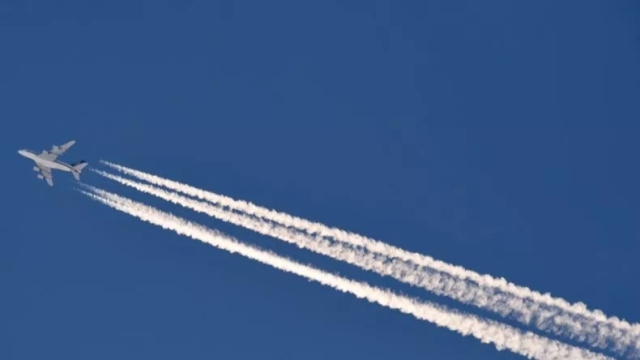
Image: Newsweek/Christof Stache/AFP via GETTY IMAGES
Modern commercial aircraft flying at high altitudes create longer-lived planet-warming contrails than older aircraft, a new study has found. The result means that although modern planes emit less carbon than older aircraft, they may be contributing more to climate change through contrails.
Led by scientists at Imperial College London, the study highlights the immense challenges the aviation industry faces to reduce its impact on the climate. It also found that private jets produce more contrails than previously thought, potentially leading to outsized impacts on climate warming.
Contrails, or condensation trails, are thin streaks of cloud created by aircraft exhaust fumes that contribute to global warming by trapping heat in the atmosphere. While the exact warming effect of contrails is uncertain, scientists believe it is greater than warming caused by carbon emissions from jet fuel.
Modern aircraft that fly at above 12km, such as the Airbus A350 and Boeing 787 Airliners, create more contrails than older passenger-carrying commercial aircraft, the study found, using machine learning to analyse satellite data on more than 64,000 contrails from a range of aircraft flying over the North Atlantic Ocean.
To reduce jet fuel consumption, modern aircraft are designed to fly at higher altitudes where the air is thinner with less aerodynamic drag, compared to older commercial aircraft, which usually fly at slightly lower altitudes (around 11km).
This means these higher-flying aircraft create less carbon emissions per passenger. However, it also means they create contrails that take longer to dissipate – creating a warming effect for longer and a complicated trade-off for the aviation industry.
Source: Imperial College London